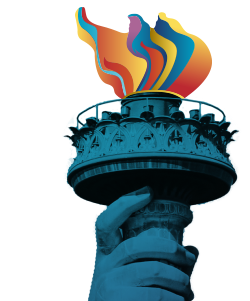Theoretical chemist, poet, and playwright Roald Hoffmann understands impact. Among a myriad of accomplishments, his research in chemistry led to the creation of the Woodward-Hoffmann rules, which allow scientists to predict how molecules will break or form bonds. For this work, he won the Nobel Prize in Chemistry in 1981.
As a child in Poland, Hoffmann and his mother were smuggled out of a Nazi prison camp and would spend the rest of the war sheltered by a Ukrainian man in the attic of a local schoolhouse. Unable to escape, his father remained behind and was ultimately executed. Reflecting on his childhood, Hoffman remarked, “We survived by chance.… And because we were helped by one good man.” As he would later go on to explain, “Almost everyone who survived … has a good story to tell, and in it featured good human beings … saviors. Because it was impossible to survive without help from somebody, and there are good people in any times, and those good people save the world.”
After the war, Hoffmann spent several years in displaced persons’ camps before coming to the United States at the age of 11. He studied chemistry at Columbia University and Harvard University. Since 1965, he has taught at Cornell University, where he is now the Frank H. T. Rhodes Professor of Humane Letters, Emeritus. In addition to the Nobel Prize, he has also received the National Medal of Science and several awards from the American Chemical Society, including the Priestley Medal, the Arthur C. Cope Award, and the ACS Award in Inorganic Chemistry, among many other honors. Beyond his many achievements in science, Hoffmann is a widely published poet and playwright whose poems have been translated into French, Portuguese, Russian and Swedish. As he writes in his Nobel Prize biographical essay, “The words are important in science, as much as we might deny it, as much as we might claim that they just represent some underlying material reality. It seems equally obvious to me that I should marshal words to try to write poetry. I write poetry to penetrate the world around me, and to comprehend my reactions to it.”
https://www.roaldhoffmann.com/







